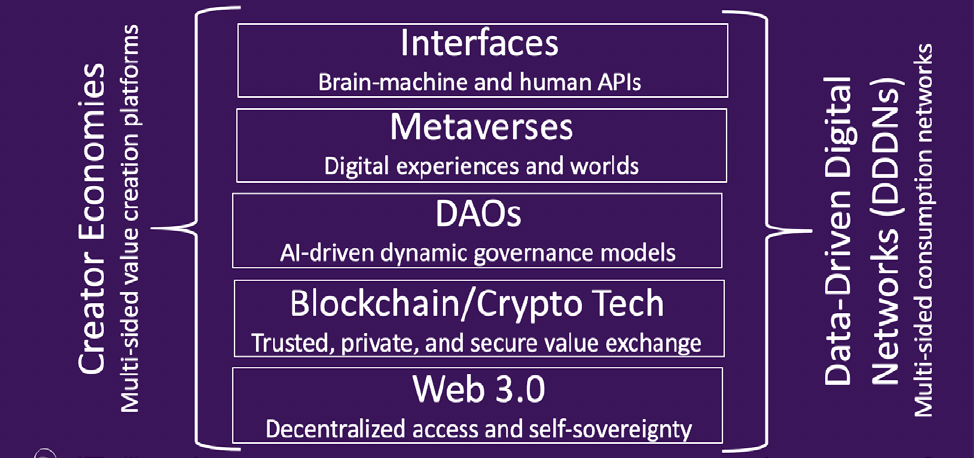Is this what a battle line looks like in the metaverse?
Is this a play to dominate and reshape the gaming industry? Is this a play for cloud dominance? Did Microsoft and its CEO known for empathy actually smell blood in the water after headline making employee misconduct charges chased other takers from the table?
No matter how you slice it, the $68.7 billion deal just made the whole metaverse conversation a WHOLE lot more interesting.
First, let’s break down what we know about the deal. Microsoft is set to acquire Activision Blizzard, including mega gaming titles such as Call of Duty, World of Warcraft, Overwatch, Diablo along with mobile and social gaming titles like Candy Crush (before you laugh, it had $1.19 in revenues in 2020 alone) in an all cash deal. Plans are already underway to include many of these blockbuster titles to Microsoft's XBox Game Pass and PC Game Pass. It is worth noting that Activision Blizzard isn’t just a gaming company: it still has a movie production company, eSports league and eSports content network in its portfolio. It also has a TON of workloads in the cloud that gives Azure some new bragging rights against the likes of Google Cloud (who inked a 2020 deal with Activision Blizzard to be the preferred cloud provider and YouTube the exclusive streaming destination).
Let’s just say the rough stuff out loud first: Microsoft struck when the time was right and got one heck of a deal. The rumors, charges and negative press about Activision Blizzard have been swirling for a while. The lawsuit and subsequent investigations have just been the tipping point. Rumor has it there were NO other takers when Activision Blizzard first made the acquisition rounds.
The truth is that Activision Blizzard has been losing loyal long-time players disillusioned with the lack of player-first decision making that Blizzard, specifically, had been known for with the rise of massively multiplayer online games like World of Warcraft. You know you have a problem when your employees (2,000 of them) stage a walk out that prompts thousands of players online to stage a virtual walkout with many of the games top influencers and streamers leaving the game and taking their legions of viewers with them.
The bottom line is that Activision Blizzard’s content portfolio is worth the massive bags-o-billion being rolled into Santa Monica. And most don’t anticipate embattled Activision founder and Activision Blizzard CEO Bobby Kotick getting comfy in a corner suite on a Microsoft campus any time soon.
But let’s dive into this question: What’s worth more than the content? Arguably…the ownership and control of one of the broadest graphs of consumer data imaginable. Sure, Meta may have access to the data across Facebook, WhatsApp and Instagram…but now, Microsoft suddenly has console, PC, mobile and social gaming profiles and data access. With the acquisition they become the 3rd largest gaming player. But more than posture, Microsoft now has a WHOLE new set of building blocks too with the gaming, subscription, and now that whole massive multiplayer immersive universe creation thing going on. It’s a different multiverse ballgame.
The metaverse economy (which Ray has JUST published an epic report on) will stack five key components that provide the very platform on which creator economies and consumption models will exist within fully immersive digital networks (see below). There are few entities better prepared than gaming and movie studios to build these platforms.

Microsoft’s building materials to establish a metaverse platform has suddenly become FAR more interesting. They have the hardware and cloud aspect of the metaverse stack, and thanks to hardware innovations made on the Xbox hardware itself, have security chips and technologies to establish new security measures for the metaverse stack and network. Add to this the content, expertise in managing, building and engaging MMO players and influencers, the subscription network and player infrastructure to not just create a community but co-create an economy for that community online…this puts Microsoft in instant rival posture to Meta, Apple, Tencent, Epic and Unity.
But let’s extend this just a step down the road…in a fully established metaverse thru which a robust metaverse economy can thrive…gaming and entertainment can’t be the only experiences available. Instead, in this next decentralized and data-driven co-created economy, work and life will also be a collaborative connected effort. So all of a sudden, the lines of business across Microsoft (office, azure and gaming) start to reemerge as key paths and critical infrastructure to a fully formed and fully immersive metaverse.
The metaverse economy will demand that networks and economies transcend the traditional norms of place and space. Who better than Microsoft to draw the first significant battle line in who will build a platform instead of just painting a doorway into the metaverse blue?
While the metaverse may not be “really real” today…these newly painted battle lines sure are. Don’t expect this to be the last salvo.

